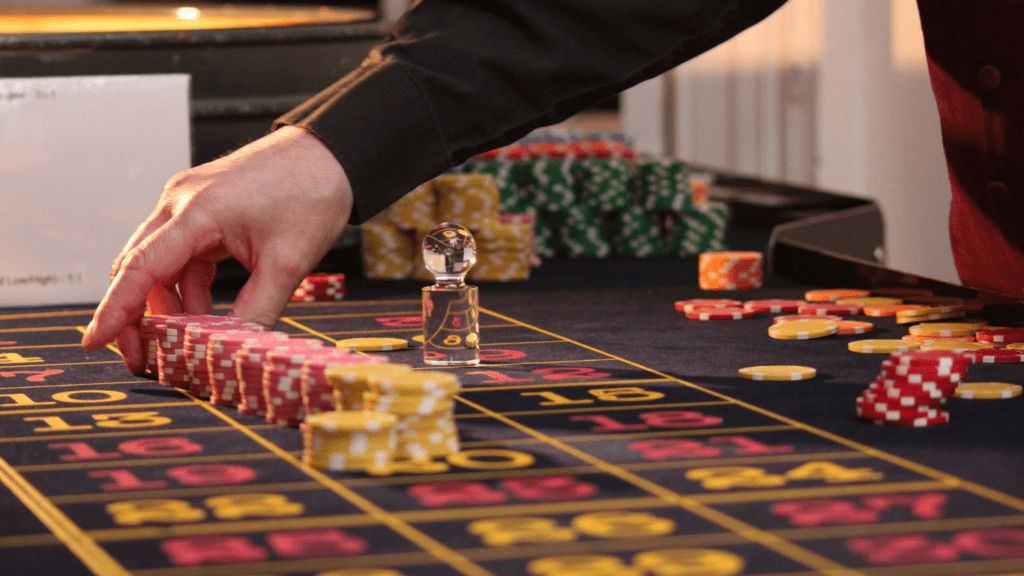Understanding Sports Betting
Sports betting involves predicting sports results and placing a wager on the outcome. Bettors often use strategies and analysis to increase their chances of winning.
Key Elements of Sports Betting
Key elements of sports betting include:
- Odds: Odds represent the probability of an event occurring and determine the payout. Higher odds imply a higher payout and lower likelihood.
- Bet Types: Bettors can choose from various bet types like moneyline, point spread, and totals.
- Markets: Markets refer to the different areas bettors can place wagers on, such as in-game events or specific player performances.
- Stake: The stake is the amount of money placed on a bet. It influences the potential return on investment.
- Bookmakers: Bookmakers set the odds and accept bets. They play a crucial role in sports betting by determining payouts.
Popular Sports Bet Types
Common sports bet types include:
- Moneyline: Bets placed on which team or player will win a game or match. For example, betting on the New York Yankees to win against the Boston Red Sox.
- Point Spread: Bets that involve betting on the margin of victory. For instance, a bet on Team A to win by more than 3 points.
- Totals (Over/Under): Bets placed on the total score of both teams in a game. Bettors wager whether the score will be over or under a specified number. For example, betting on a basketball game to score over 200 points.
- Parlays: Bets that combine multiple bets into one. All selections must win for the parlay to pay out.
- Prop Bets: Bets placed on specific events within a game, such as which player will score the first touchdown.
These key elements and bet types make sports betting an engaging and strategic form of gambling.
Exploring Casino Games
Casino games offer a varied experience, appealing to a wide audience through diverse gameplay and potential rewards. Understanding the different types of games and their mechanics can enhance both enjoyment and strategy.
Types of Casino Games
Casino games fall into several categories, each with unique characteristics.
- Table Games: Traditional games such as blackjack, poker, and roulette. These involve a dealer and are often played on a table layout.
- Slot Machines: Electronic games featuring spinning reels and paylines. Examples include video slots and classic slots.
- Live Dealer Games: Online games that stream a live dealer to the player’s device. Common examples are live blackjack and live roulette.
- Specialty Games: Various games like bingo, keno, and scratch cards. These offer simple rules and quick outcomes.
Game Mechanics and Popularity
The mechanics of casino games create distinct experiences that attract different player types.
- Random Number Generators (RNGs): Slot machines and online games use RNGs to ensure fairness. RNGs eliminate patterns, making each spin or card draw independent.
- Strategy Elements: Table games like blackjack and poker require strategic thinking. Players use probability and psychology to gain an edge.
- House Edge: Every game has a built-in house edge, representing the casino’s advantage. For instance, blackjack typically offers a lower house edge compared to roulette.
- Jackpots and Payouts: Progressive slot machines feature accumulating jackpots, making them popular. Table games often have fixed payouts but can still offer substantial rewards through skillful play.
Understanding these mechanics can help players make informed choices and enhance their overall gaming experience.
Historical Context of Sports Betting and Casino Games
Understanding the historical context of sports betting and casino games shows how these forms of entertainment became intertwined. Both emerged from ancient practices and legal advancements shaped their modern forms.
Early Beginnings
Sports betting traces back to ancient civilizations like the Greeks and Romans. They placed wagers on athletic competitions and gladiatorial matches. Early forms of gambling also appeared in China around 2300 B.C., where rudimentary games of chance featured prominently. Meanwhile, the first known casino, the Ridotto in Venice, opened in 1638, offering various games to the public.
Legal Developments
Legal developments significantly influenced sports betting and casino games. In 1931, Nevada legalized gambling, establishing Las Vegas as a gaming hub. The Professional and Amateur Sports Protection Act (PASPA) of 1992 restricted sports betting in the US but was overturned in 2018, allowing states to regulate it.
The Unlawful Internet Gambling Enforcement Act (UIGEA) of 2006 impacted online gaming and sports betting, adding complexity to legal conditions governing these activities.
Similarities Between Sports Betting and Casino Games

Sports betting and casino games might seem different at first but they share several key similarities that appeal to a wide audience. Both offer unique thrills and opportunities for strategic thinking.
Risk and Reward
Both sports betting and casino games involve taking calculated risks for potential rewards. Players (e.g., bettors and gamblers) place money on uncertain outcomes, hoping to gain more than they wagered. Risk management is vital in both scenarios. In sports betting, I might analyze team performance, player stats, and other variables. In casino games, I might consider odds, game mechanics, and betting strategies. Both require balancing potential gains against possible losses while managing risk.
Skill vs. Luck
Both forms of betting balance skill and luck. In sports betting, my success often hinges on my knowledge of the sport and my ability to interpret odds. For example, understanding a team’s form and injuries can improve my wagering decisions. In casino games, like poker or blackjack, skillful play involves strategy, decision-making, and sometimes bluffing. Yet, elements of luck remain in both activities. A last-minute goal in a soccer match or a lucky card draw can drastically alter the outcome.
Differences Between Sports Betting and Casino Games
Understanding the differences between sports betting and casino games helps enthusiasts make well-informed decisions. Each has distinct player strategies, house edge, and odds dynamics.
Player Strategies
Player strategies in sports betting focus on analysis and statistics. Bettors often use historical data, player performance, weather conditions, and other variables. For example, one might analyze a team’s past performance against its current opponent to predict outcomes.
In contrast, casino games rely on different strategies. In blackjack, players might use card counting to gain an edge. In poker, reading opponents and calculating odds can lead to better decisions. Slot machines, however, offer limited strategic options due to their reliance on Random Number Generators (RNGs).
House Edge and Odds
House edge differences significantly impact player outcomes. Casino games have a built-in house edge ensuring the casino profits over the long term. For example, American roulette has a house edge of 5.26%. Blackjack, if played with basic strategy, can reduce the house edge to around 0.5%.
Sports betting odds depend on betting markets and bookmakers. Bookmakers set odds to balance their books, giving them a margin. For instance, a standard bet might have an overround of 5%. Bettors rely on finding value bets where the perceived probability is greater than the implied probability from odds, rather than facing a fixed house edge like in casino games.
Psychological and Social Factors
Exploring the psychological and social factors reveals why individuals gravitate towards sports betting and casino games. Understanding these elements can enhance awareness and decision-making for both new and experienced players.
Player Motivation
Motivations for engaging in sports betting and casino games vary widely. Some seek the thrill of high-stakes wins, while others enjoy the strategic challenges. Emotional factors, like the dopamine rush from wins, play a significant role. Studies have shown that the anticipation of a potential win activates the brain’s reward system, similar to other forms of gambling (American Psychological Association). Additionally, the perceived skill involvement in sports betting and certain casino games can entice individuals looking to prove their expertise.
Social Influence
Social environments often amplify the attraction to sports betting and casino games. Peer pressure and social norms can heavily influence participation. Friends and family often introduce and encourage these activities, creating a shared interest. Online communities and forums also bolster engagement by providing a space for players to exchange tips and celebrate wins. Research from the National Council on Problem Gambling indicates that social interactions can significantly impact gambling behaviors, making it essential to recognize these influences.
Understanding the psychological and social factors at play can provide better insights into the allure of sports betting and casino games, aiding in maintaining a balanced approach.
Economic Impact
The economic impact of sports betting and casino games can’t be overstated. Both industries significantly contribute to national and local economies.
Revenue Generation
Sports betting and casino games generate substantial revenue. In 2022, the global gambling market was valued at around $465 billion. Statista confirms that online betting alone contributed over $66 billion. Casinos also play a crucial role, with the US commercial gaming industry recording $53 billion in revenue.
Taxes from these activities fund public amenities, such as schools and infrastructure, boosting community welfare. For example, Nevada, a major casino hub, earns nearly $1 billion annually from gambling taxes.
Industry Trends
The gambling industries are evolving rapidly. Digital platforms and mobile apps drive growth in sports betting, enabling users to place bets anytime, anywhere. According to Mordor Intelligence, the online gambling market is expected to grow at a CAGR of 11.5% from 2021-2026.
Casinos are also adapting, incorporating VR and AI technologies to enhance user experiences. Market trends show an increase in live dealer games, offering real-time interaction and a more immersive feel. Regulation changes in countries like the US, where sports betting legalization is expanding, also fuel market growth.

